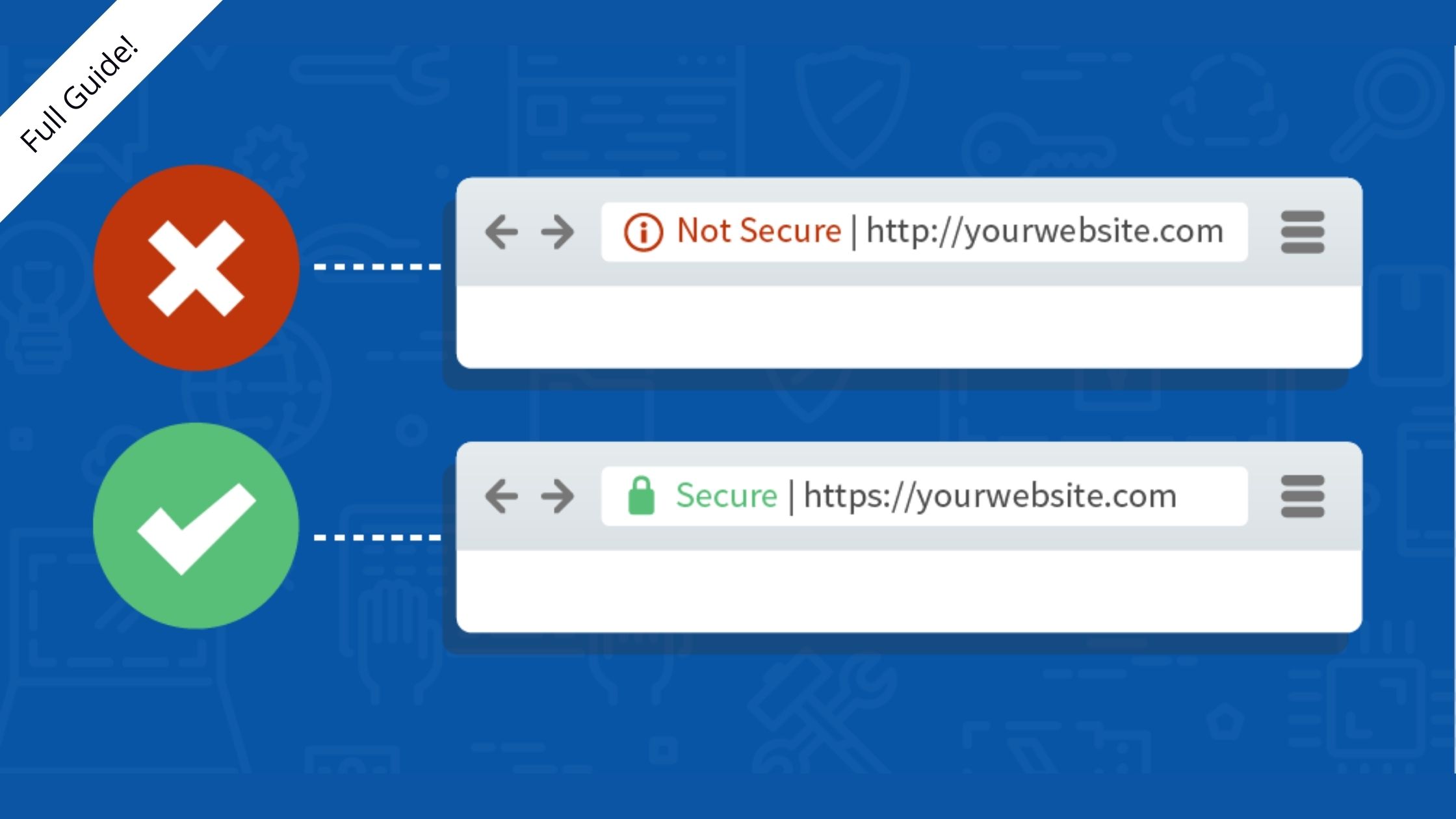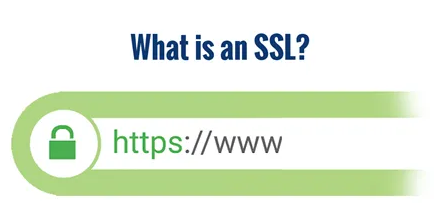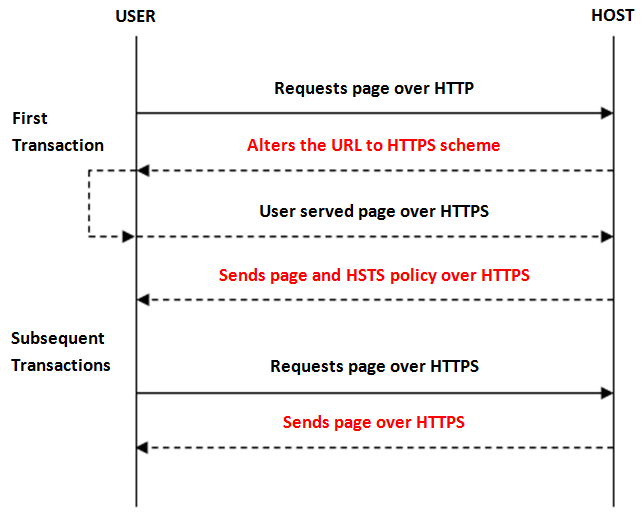Are you a website owner, then I will tell you How to Improve Website Security With SSL/TLS, so if you want to know about it, then keep reading this post. Because I am going to provide you complete information about this, so let’s start.
As you all know, in today’s time everyone is making a website for himself and his business. But not everyone is paying attention to his security. That is, it is not paying attention to the SSL Certificate (Secure Sockets Layer).
They think that the SSL certificate just gives the padlock. While they do not know how beneficial it is for your website and its security / SEO. Let us tell you, the websites which do not have SSL certificate. Today Google Chrome does not open those websites, and users and customers with Google Chrome browser will not be able to open your website, so you and your business will suffer a lot in such a situation. So you should use SSL/TLS.

So if you are really a website owner, then without wasting any time let’s get complete information about How to Improve Website Security With SSL/TLS. So let’s get started.
Table of Contents
How to Improve Website Security With SSL/TLS!
As you all know, that Maintaining security is imperative in each facet of our life. Be it a location, a marketplace, or any business, security of the same can’t be ignored. Previously everything was just about securing the physical locations or businesses. Still, the rise of digitalization (global digital transformation spending is forecast to cross 2.8 trillion dollars by 2025) and the Covid-19 pandemic has raised the security bar to another level. Digital security started becoming extremely important, just like physical security, since cyber-attacks and hackers started invading data privacy.
Though making websites is a simple task due to awesome CMS platforms (WordPress, Magento, etc.), securing them is a tough call. SSL/TLS (Secure Socket Layer/Transport Layer Security) certificates are used to ease such situations.
Many web owners are ignorant about how SSL certificates save their digital data. Before we discuss how SSL certificates bolster website security, let’s find out the consequences of your site when it’s deprived of SSL security.
- A fall in the SEO ranks
- A “Not Secure” warning is displayed by browsers when users try to access the website.
- Easy gateway for hackers and cyber-attacks to obtain site data.
- Lack of trust and confidence about the site amongst the users.
All these issues can be resolved by installing a single SSL certificate.
1. About SSL/TLS Certificates:
SSL/TLS certificates are considered the pillar of site security in this digital world. The internet is full of blogs, articles, websites, etc. and all these digital infrastructures, big or small, require an SSL certificate for securing their data and information.
2. Why does your Site need SSL Certificates?
When data is transferred on the web, it’s always in plain text. This makes the data susceptible to intruder interception.
SSL certificates secure this data with robust 256-bit encryption security, i.e., the plain text is converted into ciphertext when browsers communicate with servers and vice-versa. This ciphertext is difficult to decode, and hence hackers find it difficult to crack sites with SSL certificates.
SSL certificates indirectly inform visitors about their data security and in still trust amongst the users. So, SSL certificates are all about “essential to have it” rather than “love to have it.”
3. Types & Validations of SSL Certificates:
SSL certificates come in multiple types and validations like Domain Validation SSL (DV SSL), Organisation Validation SSL (OV SSL), Extended Validation SSL (EV SSL), Wildcard SSL certificate, Multi-Domain SSL Certificate, etc.
Example:
EV SSL certificates like Comodo PositiveSSL EV ($61.6/year) provide the maximum level of trust by displaying your organization details in the certificate. They provide the highest authentication level and enhance confidence amongst site users.
SSL2Buy is one of the best-authorized SSL certificate providers offering varied SSL certificates at nominal rates.
4. How to Determine if your site has an SSL certificate?
Usually, all the sites are HTTP only. This HTTP (hyper-text transfer protocol) site requires an SSL certificate to convert to HTTPS (hyper-text transfer protocol secure). HTTPS protocol states that the site is secured with an added layer of encryption security.

If the URL of the site is HTTPS, then the site is secured with an SSL certificate. Another trust indicator is a padlock in the address bar, which is visible in the presence of an SSL certificate.
So, in short, SSL certificates secure your site. Apart from these benefits, some more pros of HTTPS protocol are:
- Improved SEO Rankings:
SEO (Search Engine Optimization) ranks are pivotal for your site. They crawl your site on the top of Google pages for maximum user visibility. A mixture of good content, optimized site, catchy images, user-friendly navigation, and responsiveness to various devices will raise your SEO ranks.
Another factor is the SSL certificate installation on the site, which helps your site rise further since Google announced HTTPS as a ranking factor way back in November 2014.
- Trustworthiness:
In this unsafe digital world, where nothing is secured, SSL certificate installation on the webserver gives a feeling of trust in the customer’s mind. Customers view the trust symbols, i.e., HTTPS and secure padlock, which are visible in the presence of an SSL certificate, and are ensured about the security of the site.
- Boosts Sales:
Trust and online sales go hand in hand. An increase in trust leads to a rise in online sales too. Customers check the site security before making transactions.
HTTP sites are flagged “Not Secure” by Google, and the absence of SSL certificates will increase the site abandonment rate. No one will share their sensitive data on unsecured sites. SSL certificates motivate customers to trust the site and easily make purchase transactions.
5. How do SSL and TLS Certificates make HTTP Secure?
As stated, HTTP indicates the absence of SSL certificates, and even Google flags these sites as unsecured sites.
Web owners who crave customers ensure that all customer transactions and communications are secured. In the case of HTTP sites, all browser-server communication is done in plain text, which is easily readable by hackers.
Hence, web owners purchase an SSL certificate for their site, which encrypts all the HTTP communications and secures them.
The encryption security of these certificates effectively converts all the communications and information into a coded format (encrypted form) which is difficult for cyber-criminals to interpret.
- Install Site Seal:
Are you aware that site seals are integral to SSL certificates?
In case you are unaware, let me brief you that SSL certificates have site seals that carry the name of the Certificate Authority (CA) who has issued the same.
When a web owner requests an SSL certificate, CA’s issue the same, the SSL certificate comprises the site seal, proof of verification done by a third-party authority for identifying your business.
When this site seal is placed on an appropriate location on your website, it ensures the visitors that your site is reliable and can be trusted.
- Implement HSTS:
HTTP Strict Transport Security (HSTS) is a method used by websites. This method states that the site should be accessed only using a secure HTTPS connection.

When a site declares HSTS policy, the browser will reject all HTTP connections and prevent the users from receiving non-reliable SSL certificates.
HSTS also prevents the website from cookie hijacking and other attacks.
- Generate a CAA Record:
You can choose your preferred CA, and if you wish to buy SSL certificates for your site security from them only, you can generate a CAA (certificate authority authorization) record for your website.
This move will prevent other CAs from issuing SSL certificates for your site and, in turn, prevent unreliable CAs from issuing SSL certificates for your site security.
Conclusion!
SSL certificates are a one-stop solution for your site security. Their motto to facilitate authentication and encryption for data communication between browser-servers is commendable.
Critical data transmission is well secured with encryption security provided by these certificates.
Read also:)
- How To Optimize Woocommerce Store To Boost Traffic: Full Guide!
- Your Guide to The Certificate Chain of Trust: The A-to-Z Guide!
- (No 1) Website Design Company In Dehradun, India
So we hope that you liked our article “How to Improve Website Security With SSL/TLS“. And if you still have any questions and suggestions related to this, then you can tell us in the comment box below. And thank you so much for reading this post.